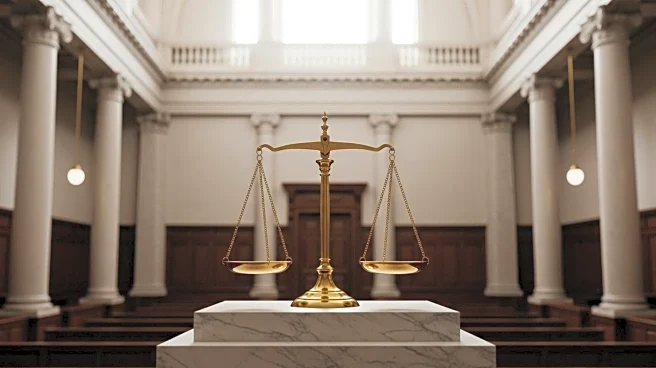What's Happening?
The New South Wales parliament is embroiled in a legal battle concerning its authority to compel witnesses to testify before parliamentary committees. James Cullen, the chief of staff to Premier Chris Minns, is challenging a summons to appear before a committee investigating a leak of confidential minutes. Cullen argues that the summons undermines the institutional integrity of the supreme court, raising complex constitutional questions. The case has been filed with the NSW court of appeal, with significant implications for the separation of powers between the judiciary and the legislature.
Why It's Important?
This legal confrontation could have far-reaching implications for the functioning of parliamentary committees and their ability to enforce compliance with their orders. The case raises important questions about the balance of power between the legislative and judicial branches, potentially affecting how parliamentary inquiries are conducted in the future. The outcome may influence the accountability mechanisms for government officials and their staff, impacting transparency and governance practices.
What's Next?
The court's decision will be closely watched, as it could set a precedent for the powers of parliamentary committees in Australia. If the court rules in favor of Cullen, it may limit the ability of parliament to compel testimony, affecting future investigations. Conversely, a ruling against Cullen could reinforce parliamentary authority, potentially leading to more rigorous oversight of government actions. The case may also prompt legislative reviews to address any constitutional ambiguities.
Beyond the Headlines
The case highlights the ongoing tension between maintaining governmental transparency and protecting the independence of the judiciary. It underscores the challenges in balancing these principles within a democratic framework. The outcome could influence public perceptions of governmental accountability and the effectiveness of parliamentary oversight.










